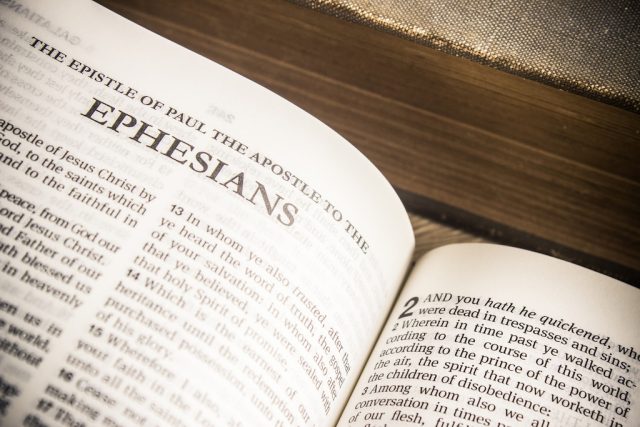Article
7 Principles of an Honest Church Leader
It doesn’t matter the size or polity of your church, you cannot have a healthy leadership culture (or church culture) without having an honest leadership culture.

It doesn’t matter the size or polity of your church, you cannot have a healthy leadership culture (or church culture) without having an honest leadership culture. Without honesty, there is no trust. Without trust, there is no relationship, no togetherness, and no risk-taking. And while this seems obvious, that doesn’t make it easy. Honesty in itself is a risk, after all.
When I say honesty I don’t simply mean “saying true things.” That is the baseline for real honesty, but not the biblical standard and ideal. We can say true things and entirely mislead someone by what we omit. Real honesty is measured by making yourself known and hiding nothing. First John 1:7 says, “But if we walk in the light, as he is in the light, we have fellowship with one another, and the blood of Jesus his Son cleanses us from all sin.” This is the standard for honesty we aspire to as Christians, and especially as church leaders. So, what does it look like to “walk in the light” as a leader and as a leadership team? Here are seven principles about honesty and the effect they can have on our churches.
1. A lack of honesty is a lack of humility.
The honesty that 1 John 1:7 describes is vulnerable. It requires taking the scary step from the shadows into the light, revealing our hearts and motives and fears and struggles. A refusal to do this is prideful, motivated by self-protection and preservation (while ironically also being self-destructive). Humility is a qualification for pastors and elders because it is a defining aspect of Christ’s character. So, if we refuse to be humbly honest, we are on a trajectory of disqualification from ministry.
2. Nobody will be more honest than the leader is gracious.
If we want a culture of honesty in our church, and especially among the leaders, we must foster a context of deep grace. We must receive the honesty of others in the same way Jesus did, never dismissing sin and always welcoming sinners to a way of redemption. Of course, this depends on our own experience of grace. Have we deeply received and felt the call and kindness of Jesus in our darkest moments and places so that we are able to share the same with others?
3. Nobody will be more honest than the leader.
If the culture-setters, the pastors and leaders, will not be boldly humble enough to reveal our hearts, how could we expect anyone else to? It is difficult enough to risk honesty when we are in a context of safety and support and love and grace, but to do so when the culture, represented by leaders, doesn’t invite honesty is absurd and even dangerous. To ask for honesty from others without being willing to go there first is hypocrisy. It is antithetical to being good shepherds because it is asking the sheep to take risks we won’t share.
4. True honesty requires total transparency.
To “walk in the light” is to move from the perceived safety of isolation and secrecy into the true safety of handing things over to Jesus. Our honesty is not ultimately before other people, but before God, so we are both free to be totally transparent and commanded to be. Assuming you aren’t living in outright rebellion against God, ask yourself what parts of your thought life, faith, or history you have refrained from sharing with anyone. Those are the areas of your life that likely need to be brought into the light lest they become ammo for Satan to use against you with guilt and shame. Of course, as leaders, we must be wise in our manner and timing of transparency. Every member ought not to know every sin, every struggle, and every fear in your life. But every member must know A) that you have sins, struggles, and fears and B) that you are utterly honest about them with some other Christians.
5. The perceived risk of honesty is mostly fake.
What holds us back from honesty? If we are living in willful sin, then we fear consequences like disqualification from ministry, job loss, shame, relational damage, and more. And rightfully so, because we are living in willful sin, we have earned those consequences. It’s not honesty that brings them but our disregard for God and His Word. However, if we are faithfully walking with Jesus and serving Him, our fears about honesty are different and more subtle: loss of reputation, loss of authority or respect, and potential leverage for those who oppose or dislike us. In reality, though, those fears are largely amplified by our own sinful inclinations. We create boogeymen out of our insecurities and prideful inclinations and let them frighten us back into isolation and opacity. We miss the reality that, in Christ, honesty sets us free, and because we share oneness in Christ with those to whom we are being honest, they are able to respond to us with the grace of Jesus.
6. Honesty is freedom and protection.
Mark Twain is credited with saying, “If you tell the truth, you never have to remember anything.” His point, while amusingly phrased, is spot on. If we are honest, we need not be burdened and anxious. We have laid the burden of sin and shame and failure and fear at the feet of Jesus. We have stepped from the captivity of darkness into the freedom of light. A clear conscience before God and man is an unmatched blessing. When we move from hiding and veiling to revealing and confessing, we have moved from danger to safety. Instead of waiting for the other shoe to drop or fearing that others may find out our dirty little secret (whatever that may be), we are safe in repentance and acceptance by Jesus and his people. An accuser no longer has anything to hurl at us because they already hurled it at the cross. As church leaders, this means we can do the work of ministry and proclaim the gospel of Jesus with freedom, energy, and joy with none of the imposter syndrome or shame we once carried. We can seek the Lord and get after His work with abandon instead of trepidation.
7. Honesty among leaders shapes the whole culture.
When leaders in a church are deeply and profoundly honest, it can shape the culture of the whole church. How could it not? The kind of honesty set forth in 1 John 1:7 puts Jesus first, relies on Jesus above all, and welcomes others into a culture marked by the “aroma of Christ” (2 Cor. 2:15). It is a culture of trust, not because the leaders are so exceptional but because we depend on an exceptional Savior and refuse to venture far from Him. It is a culture of safety because we recognize our mutual need for Jesus, so we aren’t condemning. It is a culture of growth because when we are constantly looking to Jesus and moving toward Jesus together.




